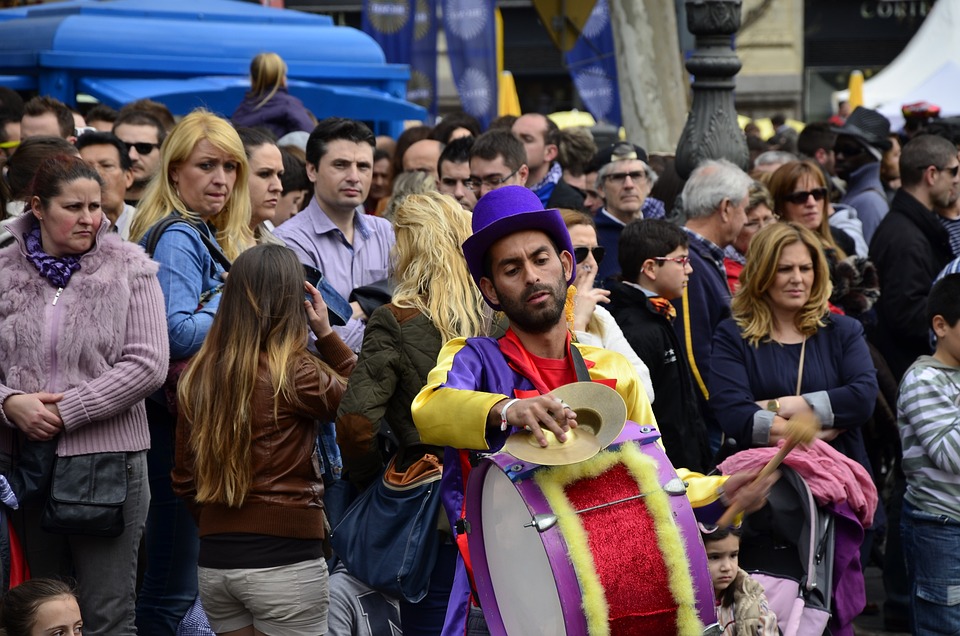The Role of Music in Shaping Popular Culture
Music has always played a significant role in shaping popular culture. From the catchy tunes of the 1950s that set the stage for the birth of rock and roll, to the innovative sounds of the 1980s that defined the era of pop music, music has the power to influence our feelings, thoughts, and behaviors. In this article, we will explore the ways in which music has shaped popular culture throughout history.
The Evolution of Music
Music has evolved over the years, reflecting the social, political, and cultural changes of each era. In the 1960s, for example, the rise of the counterculture movement led to the popularity of folk and protest music, with artists like Bob Dylan and Joan Baez using their music to express their views on social issues. The 1970s saw the rise of disco music, which became synonymous with the party culture of the decade. In the 1990s, the emergence of hip-hop music brought a new sound and style to the mainstream, influencing fashion, language, and attitudes among young people.
The Influence of Music on Fashion
Music and fashion have always been closely intertwined. Musicians often serve as style icons, setting trends with their distinctive looks both on and off stage. From Elvis Presley’s pompadour and leather jackets to Madonna’s iconic cone bra and fingerless gloves, musicians have long been at the forefront of fashion innovation. In recent years, artists like Beyoncé and Lady Gaga have used music videos and performances as a platform to showcase their unique sense of style, inspiring fans to emulate their looks. As a result, the worlds of music and fashion continue to influence each other, shaping popular culture in the process.
The Impact of Music on Social Issues
Music has the power to address important social issues and bring about change. Throughout history, musicians have used their platform to raise awareness of political, environmental, and humanitarian causes. In the 1980s, artists like U2 and Bob Geldof organized charity concerts and released benefit singles to raise funds for famine relief in Africa. More recently, artists like Kendrick Lamar and Beyoncé have addressed racial inequality and police brutality in their music, sparking important conversations about social justice. By using their music to shed light on important issues, artists can inspire their fans to take action and effect real change in the world.
The Role of Music in Marketing
Music plays a key role in marketing, helping to create emotional connections between brands and consumers. In commercials, movies, and television shows, carefully selected songs can evoke specific emotions and memories, influencing how we perceive a product or brand. For example, the use of a catchy jingle in a commercial can help to create brand recognition and generate positive associations with a product. Similarly, the use of popular music in a movie soundtrack can enhance the emotional impact of a scene, helping to create a more immersive viewing experience for audiences. As a result, music has become an essential tool for marketers looking to engage consumers and create memorable experiences.
The Future of Music in Shaping Popular Culture
As we look to the future, it is clear that music will continue to play a crucial role in shaping popular culture. With the rise of digital platforms like Spotify and Apple Music, listeners have more access to a wider range of music than ever before. This has led to the democratization of music, allowing independent artists to reach larger audiences and challenge the dominance of major record labels. In addition, the growing popularity of music festivals and live events has created new opportunities for artists to connect with fans and showcase their music in a more personal and immersive setting.
In conclusion, music has the power to shape popular culture in profound ways. From influencing fashion trends and social movements to creating emotional connections in marketing, music plays a central role in defining the cultural landscape of each era. As we move forward into an increasingly digital and interconnected world, it is clear that music will continue to be a driving force in shaping popular culture for years to come.











Leave a Reply